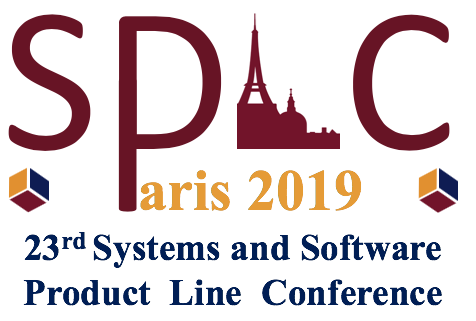Doctoral Symposium Keynote Speaker: Professeur Carlo Ghezzi (in conjunction with ECSA Doctoral symposium)
|
 |
Becoming and being a researcher–what I wish someone would have told me when I started doing research
Why should one wish to become a researcher? What is the role of research and researchers in society? What does one need to do to become a researcher as a PhD student (but also before and after)? What can be the progress of a researcher in his or her career? How to survive and be successful? These are some of the questions I will try to answer in my presentation, based on what I learnt from others and on my own experience.
Very often, young researchers are too busy doing their own research and don’t care about the global picture and ignore these questions. Often, their academic supervisors only focus on the technical side of their supervision and don’t open the eyes of their young research collaborators. But then, sooner or later, these questions emerge and an answer must be given.
In particular, I will focus on three issues:
– Diffusion of research, through publications and other means. What does a beginning researcher need to know and what is a good personal strategy?
– Evaluation of research and researcher. Researchers need to understand that they will be subject to continuous evaluation. Why? How? And, most important, how should they prepare to live through continuous evaluations?
– Ethics. Researchers need to be aware of the ethical issues involved in doing research. On the one side, integrity is needed in the every-day practice of research. On the other, research is changing the world in which we live. The products of research lead to innovations that can have a profound influence on society, and because of the increasingly fast transition from research to practice, they affect the world even before we understand the potential risks. What researchers might see as purely technical problems may have ethical implications, and this requires ethics awareness while doing research.
Carlo Ghezzi is an ACM Fellow (1999), an IEEE Fellow (2005), a member of the European Academy of Sciences and of the Italian Academy of Sciences. He received the ACM SIGSOFT Outstanding Research Award (2015, the Distinguished Service Award (2006), and the 2018 TCSE Distinguished Education Award from IEEE Computer Society Technical Council on Software Engineering (TCSE). He has been President of Informatics Europe. He has been a member of the program committee of flagship conferences in the software engineering field, such as the ICSE and ESEC/FSE, for which he also served as Program and General Chair. He has done research in programming languages and software engineering for over 40 years and has been a recipient of an ERC Advanced Grant on self-adaptive software systems. He has published over 200 papers in international journals and conferences and co-authored 6 books.
List of Accepted Papers:
Full papers
- Nicolas Hlad
Facilitating the Development of Software Product Lines in Small and Medium-Sized Enterprises - Angel Cañete
Energy Efficient Assignment and Deployment of Tasks in Structurally Variable Infrastructures - Sebastian Krieter
Enabling Efficient Automated Configuration Generation and Management
Other papers at:
